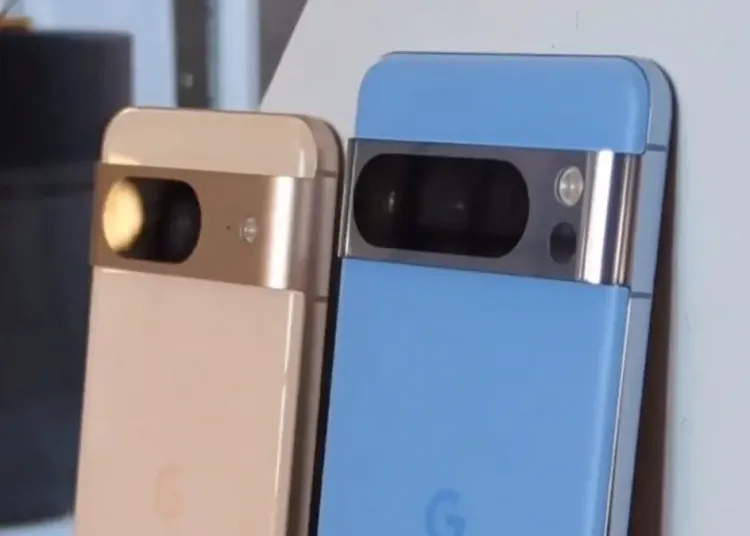
Google has implemented measures to limit the use of benchmarking tools, such as geekbench and 3dmark, on its latest smartphone models, the pixel 8 and pixel 8 pro. these devices feature the advanced tensor g3 processor, a unique entry into the competitive smartphone chipset market. while google places emphasis on efficiency and artificial intelligence, recent developments indicate their intention to suppress conventional benchmarking tools for these devices. tensor g3 cpu/gpu architecture: the pixel 8 series is powered by the tensor g3 chip, which showcases an unconventional 9-core cpu architecture.
this configuration includes a cortex-x3 mega-core running at 3.00ghz, four cortex-a715 large cores operating at 2.45ghz, and four cortex-a510 small cores with a clock speed of 2.15ghz. this heterogeneous setup is designed to optimize both performance and power efficiency, aligning with google’s focus on ai capabilities rather than raw processing power. the accompanying 10-core arm mali-g715 gpu stands out with its hardware-level ray-tracing acceleration capabilities, indicating google’s priority on graphics performance and preparing the pixel 8 series for high-quality mobile gaming and immersive visuals. benchmarking restrictions: google’s decision to block the installation of popular benchmarking tools like geekbench and 3dmark through the app store for new pixel 8 series users has generated attention. this strategy appears to be aimed at preventing the dissemination of benchmark scores that might highlight potential performance limitations of the tensor g3 chip. google defends this action by asserting that the design of the tensor g3 chip prioritizes efficiency and ai-driven tasks, instead of pursuing high benchmark scores.
while many smartphones rely on benchmarks like geekbench to showcase their computational power, google has taken a different path by focusing on ai enhancements and user experience. workarounds and benchmark results: despite the restrictions imposed by google, resourceful users have discovered workarounds to run benchmarking tools on the pixel 8 series devices. the revealed benchmark results have raised questions. for example, a geekbench 6 score displayed the pixel 8 pro’s tensor g3 chip achieving 1,760 in single-core testing and 4,442 in multi-core testing. these scores noticeably fall behind competitors like the qualcomm snapdragon 8 gen2 chip, underscoring a performance gap. furthermore, tests indicate that the tensor g3’s gpu efficiency rankings are significantly lower than those of the snapdragon series, indicating a potential performance gap in graphics-intensive tasks. google’s decision to block geekbench and 3dmark aims to prevent consumers from becoming aware of these performance limitations.
conclusion: in a landscape where benchmark scores have become integral in smartphone comparisons, google’s approach with the pixel 8 series challenges conventional wisdom. by restricting benchmarking tools and prioritizing ai-driven efficiency, google makes a bold statement that benchmark scores might not be the most reliable metric for evaluating smartphone quality. while the tensor g3 chip may not top the charts in terms of raw performance, it offers a distinct set of capabilities that could prove valuable in the long run. as the pixel 8 series continues to evolve, it will be intriguing to observe the response from users, reviewers, and the wider industry to this innovative approach.

 পঞ্চবানী নিউজ ডেস্ক
পঞ্চবানী নিউজ ডেস্ক 













